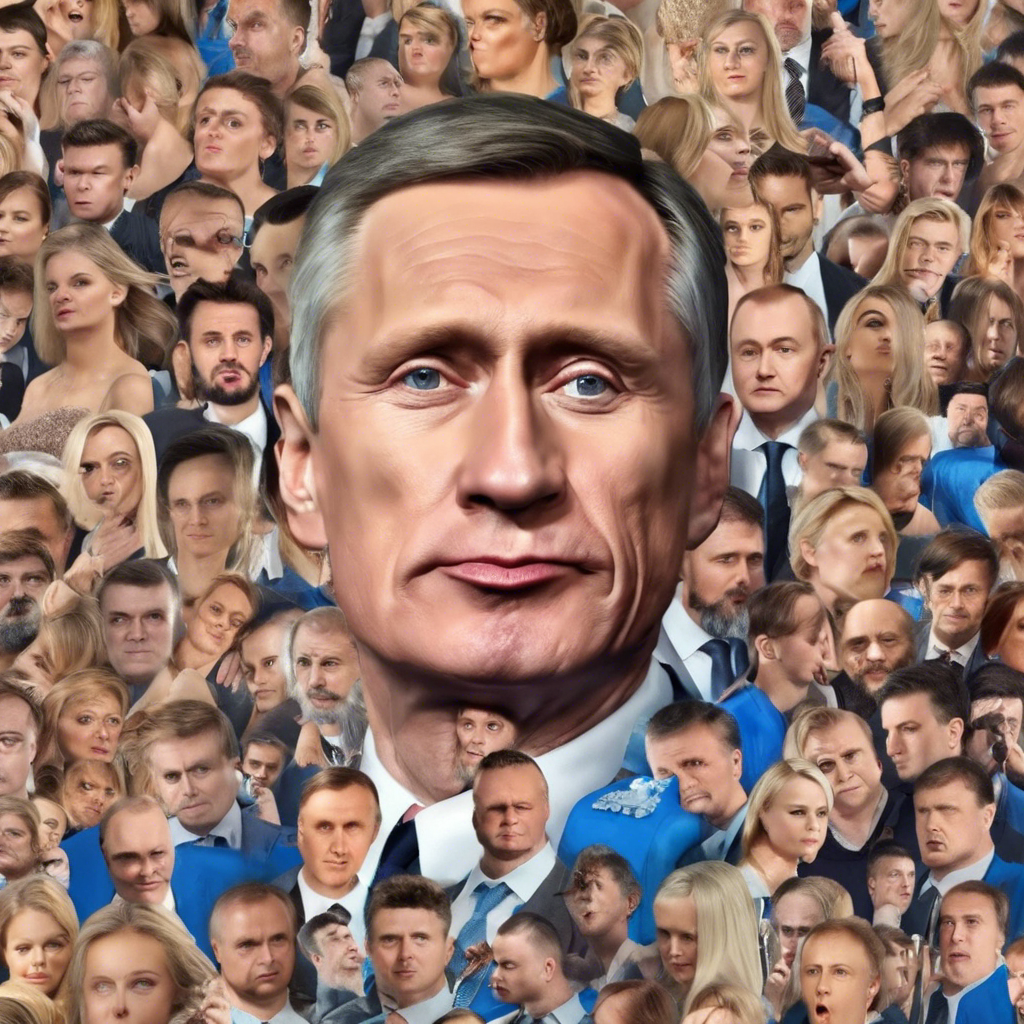Russian Influence Operation Uses Western Celebrities to Spread Disinformation About Ukrainian President’s Drug Addiction

A Microsoft report reveals how Russian influence operations are targeting Ukraine with disinformation campaigns, utilizing Western celebrities to spread false narratives about Ukrainian President Volodymyr Zelensky’s alleged drug addiction.
A recent report by Microsoft has shed light on an apparent Russian influence operation aimed at spreading disinformation about Ukrainian President Volodymyr Zelensky. The operation involved the use of Western celebrities, including American actor John McGinley, to send personalized messages to “Vladimir,” which were then shared widely on social media and covered by news outlets. The messages suggested that Zelensky struggles with drug addiction, a narrative frequently pushed by pro-Russian sources. This campaign is just one aspect of the ongoing hybrid war between Russia and Ukraine, with cyber operations playing a significant role.
The Russian Influence Operation and its Objectives
The Russian influence operation documented in the Microsoft report involved the use of Cameo, a website where users can pay for personalized messages from celebrities. Celebrities such as John McGinley, Elijah Wood, Dean Norris, Kate Flannery, Priscilla Presley, and Mike Tyson were featured in the campaign. The objective was to spread the idea that Zelensky suffers from drug addiction, a message that aligns with pro-Russian narratives. These videos were designed to be shared by ordinary people and covered by news outlets, amplifying the false claims.
The Role of Cyber Operations in the Ongoing Hybrid War
As the physical gains in the war between Russia and Ukraine become harder to come by, cyber operations have become a crucial tool for both sides. The Microsoft report highlights the continued importance of cyber operations in Russia’s hybrid war against Ukraine. Clint Watts, the general manager of Microsoft’s Threat Analysis Center, notes that as the conflict persists, Russian cyber and influence operators will intensify efforts to demoralize the Ukrainian population and undermine Kyiv’s external sources of support.
Seasonal Pivot of Russian Attacks and Disinformation
The report also reveals a seasonal pivot in Russian kinetic and cyber attacks, with a focus on Ukraine’s agriculture industry. Additionally, cyberespionage targeting war crimes investigations, governmental bodies, and think tanks has been observed. Russian-aligned efforts have also exploited global events to spread anti-Ukrainian messaging, as seen in the context of the fighting between Israel and Hamas. False claims about Ukrainian weapons being acquired by Hamas and allegations of foreign recruits fighting in Ukraine joining the Israeli Defense Forces in Gaza have been pushed by pro-Russian information operations.
The Role of Doppelganger and AI in Disinformation Campaigns
The Microsoft report highlights the activities of a Russian-aligned information operation known as Storm-1099, which utilizes both spoofed news websites and original phony news sites to push pro-Russian narratives. This operation, also tracked as “Doppelganger,” has primarily targeted Germany and Western Europe but has expanded its reach to include Israel and the United States. Researchers have discovered the use of generative artificial intelligence to create news stories, although these stories have received minimal organic engagement. The expansion of targeting and themes suggests that pro-Russian information operations may target the 2024 elections.
Conclusion:
The Russian influence operation utilizing Western celebrities to spread disinformation about Ukrainian President Volodymyr Zelensky’s alleged drug addiction highlights the ongoing hybrid war between Russia and Ukraine. Cyber operations play a significant role in this conflict, with efforts aimed at demoralizing the Ukrainian population and undermining Kyiv’s external sources of support. The report also reveals the seasonal pivot of Russian attacks and disinformation, as well as the use of AI in creating false narratives. As the conflict continues, it is crucial to remain vigilant against these disinformation campaigns and their potential impact on future elections and global events.

